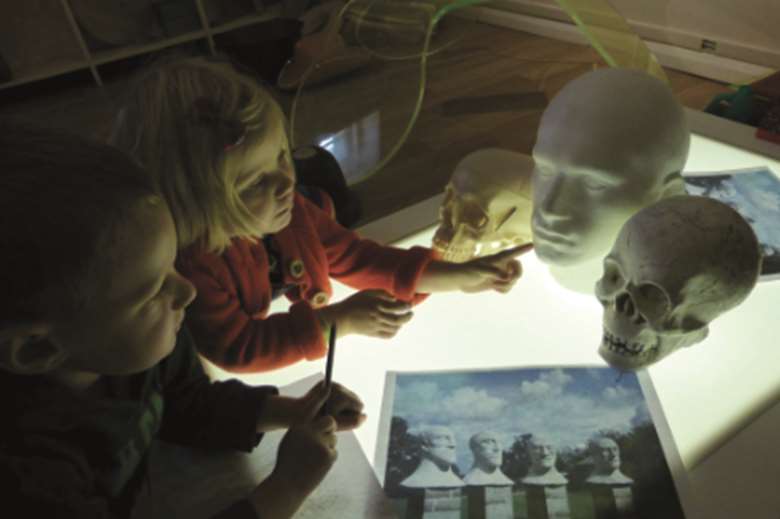New inspections welcomed by nurseries
by Katy Morton
Monday, October 28, 2019
Early years settings that have been inspected under the new framework are largely positive about their experience.

- Recently inspected settings pleased with new process
- They report new focus on practice over paperwork
Early years settings that have been inspected under the new framework are largely positive about their experience.
Just over a month since the Education Inspection Framework (EIF) came in, Nursery Worldhas spoken with a handful of settings that have been inspected under it, the majority of whom believe the framework has been changed for the better.
Dr Helen Edwards, founder of Tapestry and a former Ofsted inspector, who has analysed 100 Ofsted reports from inspections that were undertaken last month (see box), said that the worries the sector had before about the inspection framework are ‘unfounded’.
Compared to previous inspections, settings Nursery World spoke to highlighted that the inspector spent much more time observing practice and speaking with staff than looking at paperwork, as outlined in the framework.
In January, Ofsted said it would be looking at the way leaders manage their workload under the EIF. Also, that inspectors will focus on what is taught and how, and will draw the outcomes that learners achieve into an education-focused, rather than data-focused, conversation.
Becca Bakter, manager of Reflections Nursery in Worthing, which was inspected last month and retained its Outstanding grade, told Nursery World, ‘The inspection was more relaxed and fitted with our ethos. It wasn’t all about the data, it was more about seeing things through the eyes of a child, which is what we are all about. It felt more like it was about the whole team.’
Ms Bakter said that the inspector also checked they aren’t completing unnecessary paperwork.
Inspectors are observing more and speaking to practitioners, asking them why they are doing what they are doing.
Kids Planet Davenport said the new inspection process made practitioners feel more relaxed.
The setting, which was recently inspected, said, ‘There was a more “observational” focus to the inspection and we could see how inspectors were taking it all in.
‘It was also a much shorter day, which helped take pressure off. In terms of documentation, inspectors were happier to discuss rather than be presented with reams of data, which was positive.’
Tracy Bucher, manager of Guildhall Feoffment Pre-school and Nursery in Suffolk and lead early years practitioner for Suffolk Council, told Nursery Worldthat the inspector spent just an hour with her and the rest of the day with the staff, speaking to every employee.
The setting was one of the first in Suffolk to be inspected under the new framework last month and was awarded Good.
However, Ms Bucher said she felt the inspection was quite ‘difficult’ and ‘expectations were high’.
She explained, ‘One of the reasons we missed out on achieving Outstanding was because not all staff reacted swiftly enough, nor did they sustain the highest levels of teaching.
‘I feel that this is an impossible ask as just like children, staff each have skills that are valuable and to judge the whole staff as good because one or two were not to the level of “teacher” was unfair in my opinion.’
Overall, the Professional Association for Childcare and Early Years (PACEY) said that so far, their members who have been inspected since the beginning of September have positive things to say.
Feedback from members of the National Day Nurseries Association (NDNA) has been that the new inspection process has enabled them the opportunity to highlight what they had been working on in each room and showcase their progress and development during the ‘learning walk’.
Melanie Pilcher, the Early Years Alliance’s quality and standards manager, added, ‘Inspections are better for the reduced focus on data. It’s meant there’s more emphasis on those areas that make a real difference to children’s learning and development, such as vocabulary and the importance of books. It’s meant practitioners have more time working directly with children, which is just as it should be.’
Cultural capital
All the settings that Nursery Worldspoke with said that the term ‘cultural capital’ did not come up at all during inspection, neither is it mentioned in their Ofsted reports.
The new phrase was referenced in the EIF and accompanying handbooks, and sparked a number of concerns among the sector.
The framework states that settings will be evaluated on ‘cultural capital’, that is how well leaders ensure that the curriculum they use or create enhances the experiences and opportunities available to children, particularly the most disadvantaged.
Concerns were raised by the sector over misinterpretation of the term, as well as confusion as early years settings already support cultural capital because it is central to how the EYFS is delivered.
Supporting EYPP children
Reflections Nursery said there was a focus in the recent inspection on supporting progress in learning for children in receipt of the Early Years Pupil Premium (EYPP), funded two-year-olds and children who have English as an additional language (EAL).
Behaviour
Under the revised framework, behaviour and attitudes is a separate judgement.
Ms Bucher said that children’s behaviour was a main focus of their inspection and there was emphasis on whether they make children independent.
‘The inspector liked that our children use real china to eat off of and scrape their own plates.’
Inspection analysis
Dr Helen Edwards’ analysis of 100 early years inspection reports reveals:
- Greater focus on settings needing to have a clear understanding of their strengths and weaknesses, as well as what they are doing to address the issues.
- More emphasis on staff well-being, in particular in relation to workload and paperwork.
- Use of more specialist education terms and information.
- About what a setting does well or doesn’t do well is less clear cut.
- Focus on reading and encouraging a love of books.
- More emphasis on self-evaluation and reflective practice and how it’s followed through.




